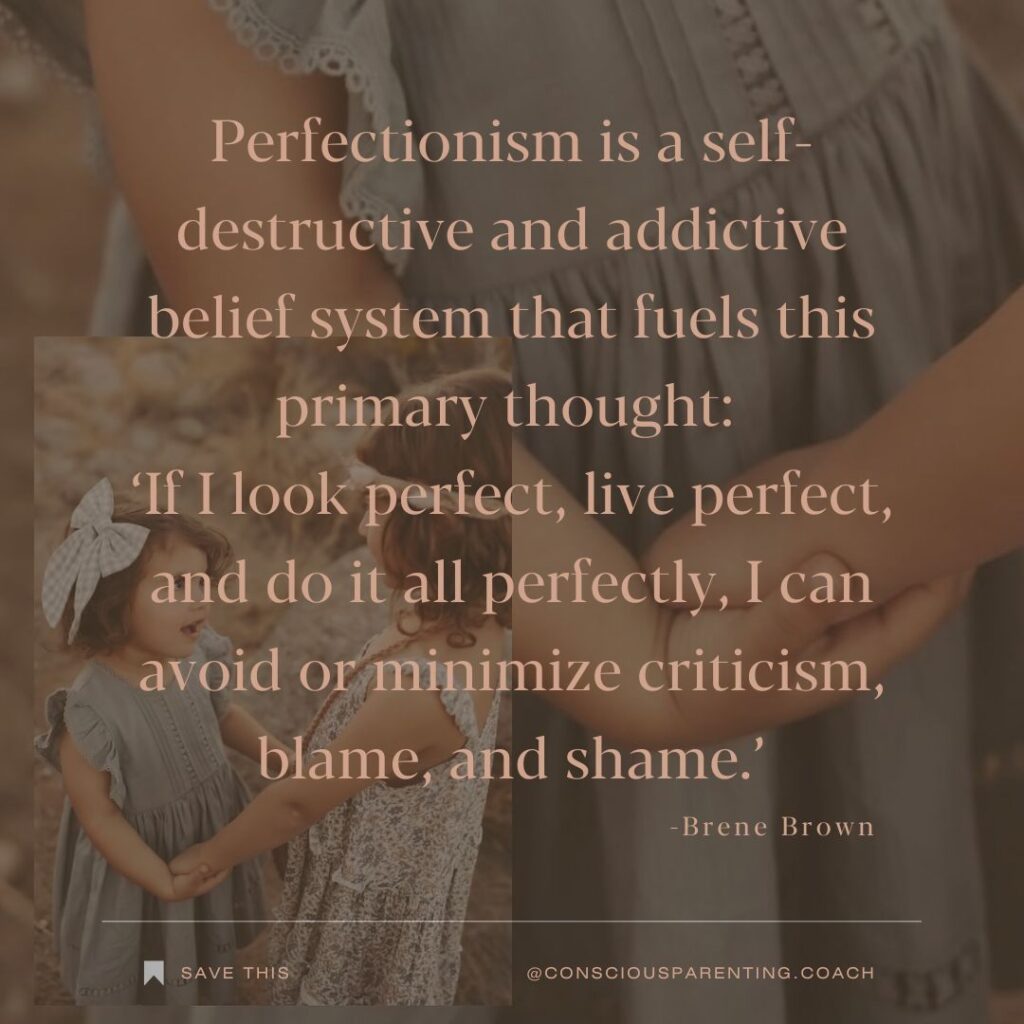Why Parents Feel Like They’re Never Good Enough — and How to Break the Cycle of Perfectionism
Many of us find ourselves striving for perfection in parenting, believing that being the ‘perfect’ mom or dad is the key to success. But this constant pursuit of an ideal can leave us feeling like we’re never good enough. If you’re tired of chasing unrealistic standards, it’s time to break free from the cycle of perfectionism in parenting.
One of the most powerful steps in healing is deciding to release the pressure of perfection.
Why Perfectionism Holds Us Back in Parenting
Perfectionism doesn’t magically appear once we become parents. It’s deeply rooted in our childhood experiences. From a young age, many of us internalize the belief that love and approval are tied to meeting high expectations. This mindset seeps into every area of our lives, including our role as parents. We may find ourselves pushing for perfection as a way to prove our worth to others — or even ourselves.
The Story of Christina: Stopping the Cycle of Striving for Perfection in Parenting
As a conscious parenting coach, I often see perfectionism deeply affecting mothers, like Christina. Christina’s story is an example of how perfectionism plays out in parenting. She worked full-time, took care of the household, and always strived to be the “perfect mom.” But it wasn’t just about being a good mom — it was about achieving perfection in every moment, whether it was in how she cared for her children or how she kept the house. The constant pursuit of this ideal led to burnout.
Christina’s Struggle:
- She tried to make her children always happy.
- She believed that perfection in parenting was the only way to succeed.
- She neglected her own well-being, sacrificing her emotional health for a perfect family image.
Eventually, Christina realized that this pursuit of perfection was damaging her ability to connect with her children in a meaningful way. She began to understand that perfectionism wasn’t helping her become the mother she wanted to be; it was making her feel inadequate.
Key Insight: Perfectionism can take the joy out of parenting. By breaking free from the idea that we must do everything perfectly, we can start showing up as the parents we want to be — imperfectly, but authentically.
Unmet Childhood Needs and Their Impact on Our Parenting
Many of us carry the weight of unmet emotional needs from childhood. Maybe we were taught to earn love through achievement, or that being “good enough” meant constantly performing at our best. When these beliefs are not addressed, they influence how we show up as parents.
This drive for validation and approval doesn’t just stay in the past — it follows us into parenthood. The need for perfection becomes a way to seek approval from others, or even ourselves. This cycle often plays out in parenting, where we push our children to meet unattainable standards or expect them to behave in ways that reflect our desire for validation.

Why Striving for Perfection in Parenting Hurts Us
Here’s where perfectionism becomes problematic in parenting: when we are trying to meet unattainable standards, we may unintentionally place unrealistic expectations on our children. This can create stress, anxiety, and fear around parenting challenges — like tantrums, misbehaviour, or unmet needs.
Reflection and Growth:
Understanding How to Stop Striving for Perfection in Parenting
Take a moment to check in with yourself. How often do you find yourself stressed or anxious about being the “perfect” parent? How do you respond when things don’t go as planned with your child? Recognizing these patterns is the first step toward growth.
Consider these questions to reflect on how perfectionism shows up in your parenting:
- How often do you feel like you’re failing because you’re not meeting your own or others’ parenting standards?
- When your child is upset, do you feel the need to “fix” everything immediately?
- Do you prioritize your child’s happiness over your own well-being?
Reflection Exercise:
What Drives Your Perfectionism?
If you’re struggling with perfectionism, take time to reflect on your childhood experiences. Understanding where your drive for perfection began can help you break free from its grip.
Journal Prompt:
- What messages did you receive as a child about being “good” or “perfect”?
- How did these messages shape your sense of self-worth?
- How does that impact your parenting today?
Actionable Steps to Stop Striving for Perfection in Parenting
Let’s break free from perfectionism. While it’s a deeply ingrained pattern, it’s not impossible to change. Here are actionable steps you can start implementing today:
- Start by Practicing Self-Compassion
Instead of focusing on what you didn’t do perfectly, acknowledge your effort. Recognize that you are doing your best — and that is enough. - Set Realistic Expectations for Yourself and Your Children
Your children are not reflections of your worth. Allow them to be imperfect. Give yourself permission to fail and grow. - Create Small, Manageable Boundaries
Start by setting boundaries in small ways. For example, if you feel overwhelmed, it’s okay to say, “I can’t help right now, but I’ll be with you soon.” These small actions can shift your mindset and reduce the pressure to be perfect. - Focus on Your Emotional Health
Taking care of your mental health is a priority. When you feel emotionally centered, you can better handle parenting challenges.
How to Cultivate a Healthier Approach to Parenting
Parenting is not about achieving perfection. It’s about showing up authentically and with love, even in moments of frustration or exhaustion. By letting go of perfectionism, we create room for empathy, connection, and growth.
Reflection Questions to Help You Break Free from Perfectionism:
- How can I practice compassion with myself as I work through my parenting challenges?
- What beliefs from my childhood am I still carrying with me today? How can I let go of these beliefs?
- How can I set more realistic expectations for myself and my children moving forward?

Moving Beyond Perfection in Parenting: How to Stop the Cycle
Perfectionism isn’t about striving for excellence — it’s about seeking validation through external measures. When we let go of the belief that we must be perfect, we free ourselves to be the parents we truly want to be. By showing up as our authentic selves, we can build stronger, more loving relationships with our children.
Are you ready to let go of the pressure to be perfect? Start your journey today by embracing imperfection. If you’d like personalized guidance to support your parenting journey, I’m here to help. Together, we can break free from the cycle of perfectionism and create a more balanced, joyful approach to parenting.
If you feel overwhelmed by the pressures of perfectionism and want support in navigating a more balanced parenting approach, let’s talk. Schedule a consultation with me today to explore how you can embrace imperfection in your parenting and find true peace in your journey.




+ show Comments
- Hide Comments
add a comment